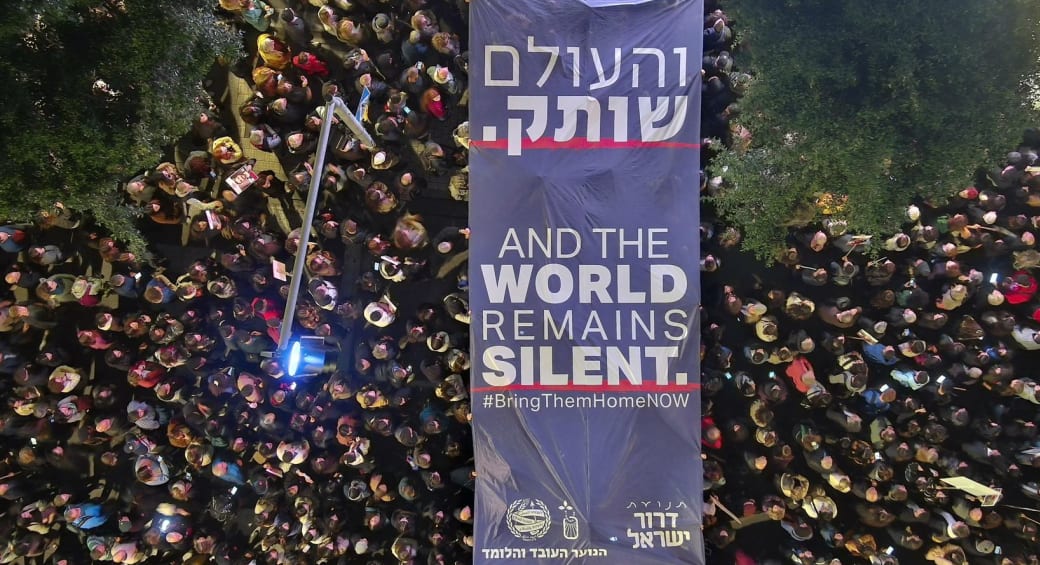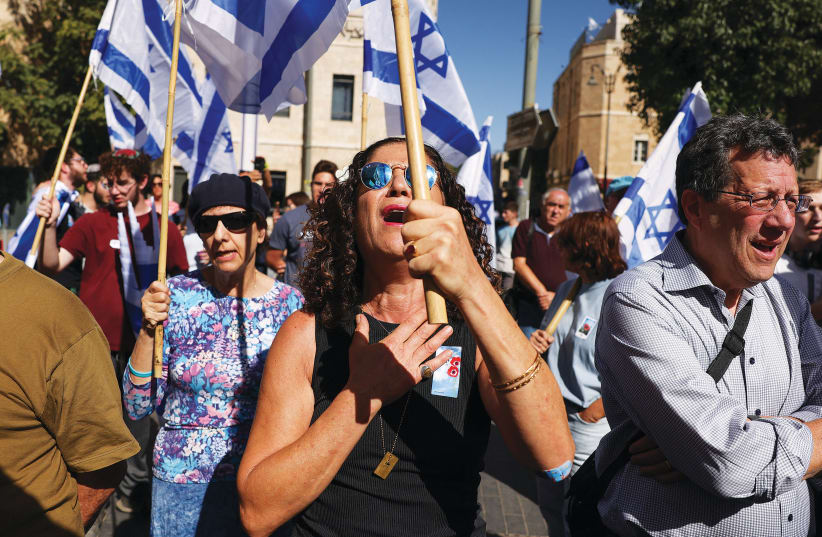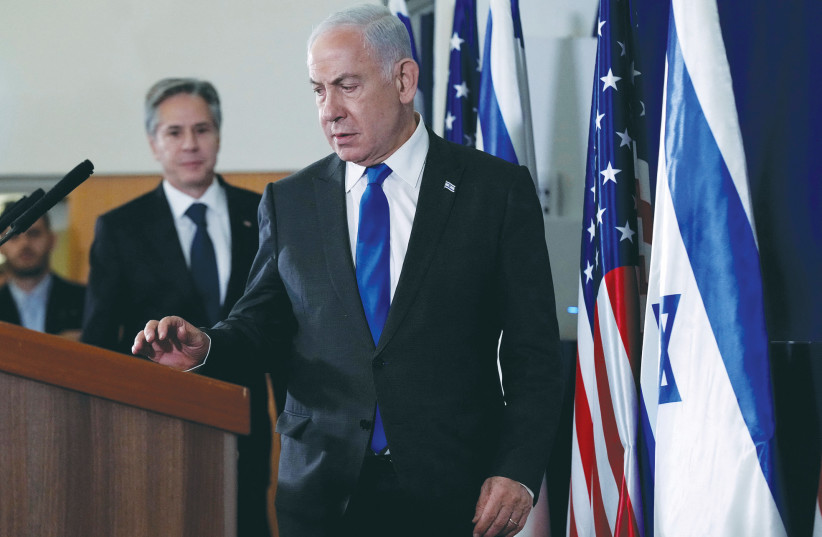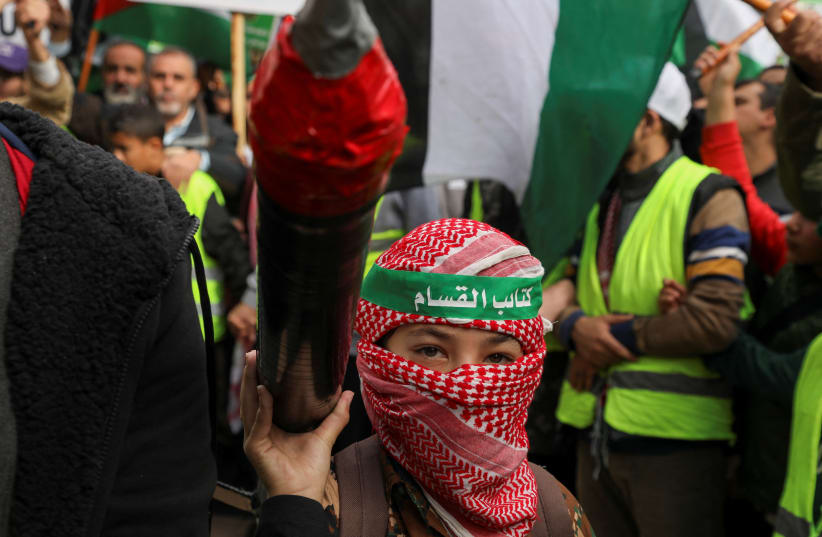Israel-Hamas War: What happened on day 99?
Netanyahu: No one, including ICJ, will stop IDF in Gaza • IDF: One killed, three wounded in Gaza battles throughout weekend

Houthi spokesperson: US strikes on Yemen have no impact on attacks on Israel-affiliated ships
Yemen's Houthis' spokesperson Mohammed Abdulsalam told Reuters that US strikes on Yemen, including the latest one on a military base in Sanaa, had no significant impact on the Houthi capabilities to continue preventing Israel-affiliated vessels from passing through the Red Sea and the Arabian Sea.
Houthi Official Ansarullah said on Saturday that there were no injuries in US latest strike against Houthi forces in Sanaa, and vowed a "strong and effective" response.
"There were no injuries, no material nor human losses," Nasruldeen Amer told Al Jazeera.
Go to the full article >>
Rocket alert in Netiv HaAssara
A rocket alert was sent for the town of Netiv HaAssara, which borders the Gaza Strip, on Saturday afternoon.
Go to the full article >>Israelis, US government at odds over Gaza and Lebanon, JPPI survey reveals
This survey was conducted with the participation of 700 Jewish Israeli respondents and 200 Arab Israeli respondents.

In a report titled “Monthly Israeli Society Index” by the Jewish People Policy Institute (JPPI), findings show that the American government and Israeli civilians are at odds. The findings could forecast a widening gap in coordination and cooperation between the United States and Israel.
Among Jewish Israelis, there is limited consensus on what Gaza should look like after the war, with only 5% agreeing with the American proposal that the Palestinian Authority should control Gaza with other Palestinian leadership.
Among the same group, 36% believe that Israel should establish control over the entire Gaza Strip, and 26% support the reconstruction of the Gush Katif settlements within Gaza.
Among Jewish opposition voters, only 9% want to give the PA a role in Gaza "the day after," and 51% of coalition voters want to rebuild Gush Katif settlements, while 3% of opposition supporters agree.
Only 44% of Israeli Jews are willing to give Palestinians any form of control. Among opposition supporters, 39% support Palestinian self-rule, although not in the hands of Hamas or the Palestinian Authority.

Among Coalition supporters, 18% agree. While others, if they do not want full Israeli control, prefer the rule of a strong nationalist power.
Opening a second front against Hezbollah
The survey also indicates that 44% of the Jewish Israeli public believes that Israel should open a second front against Hezbollah as soon as possible, in contrast with the American government’s position that aims to prevent a wider confrontation with Hezbollah. Amid coalition supporters, that number rises to 60%.
In recent weeks, the Americans have declared their opposition to a war against Hezbollah at this time and are trying to promote a solution in Gaza that will integrate an "upgraded" Palestinian Authority, to create a political horizon for peace.
Professor. Yedidia Stern, President of JPPI commented on the results saying, "The United States is a close friend of Israel, and without its support, Israel will find itself in a less favorable situation. However, as between friends, it is appropriate for the Americans to listen to the voices coming from Israel. The actions, both in the north and in Gaza, need to be conducted and promoted through agreement, as is customary between friends. American Jews can also play a significant role."
The Arab Israeli position is significantly different than the Jewish-Israeli position. Concerning the northern border, 44% of Israeli Arabs prefer an internationally supported agreement to resolve the crisis. This group agrees with 34% of Jewish respondents. Only 8% of Arab respondents believe Israel should go to war in the north.
A small number of Israelis, including both Arab and Jewish (17%) support finishing the war in Gaza and waiting for a future opportunity to strike Hezbollah.
This survey was conducted with the participation of 700 Jewish-Israeli respondents and 200 Arab Israeli respondents.
The data was analyzed and weighted by Professor Camil Fuchs to achieve a representative sample of Israel’s adult population, with analysis by JPPI’s Shmuel Rosner and Noah Sleptov.
Go to the full article >>67% of Arabs believe Oct. 7 was ‘legitimate resistance,' survey finds
The 8000 respondents, from 16 different countries, answered questions on what they thought about Hamas, their opinion on Iran and Western countries, and what actions were needed by Arab states.

A new opinion poll, carried out by the Arab Center for Research and Policy Studies, was published on January 10. The poll, which collected data from 8000 Arab respondents from 16 countries, aimed to determine how Arab populations perceived the Israel-Hamas war.
Amongst one of the many findings of the survey, it was noted that 67% of respondents perceived Hamas’s October 7th attack, categorized by the survey as “the military operation carried out by Hamas,” as “a legitimate resistance operation.” The survey results clarified that 19% answered that the attack was legitimate but “flawed,” 3% said it was legitimate but “involved heinous or criminal acts” and only 5% called the attack “illegitimate.”
Why did Hamas attack, according to respondents?
While many have seen Hamas’s attack on Israel as a proxy war for Iran, only 2% of respondents agreed, while 35% of Arab respondents stated their belief that the number 1 reason behind the attack was “The ongoing Israeli occupation of Palestinian land.”
The second most given reason was “Defending al-Aqsa Mosque against attacks,” which 24% of respondents affirmed as their believed reason.
The al-Aqsa Mosque has been a source of tension as it is located above the Temple Mount, a holy site for both Jews and Christians. While non-Muslims now have permission to attend their holy site via the Moors Gate, they are forbidden from praying there which has created increased tension. Jewish activists have repeatedly tried to pray at the site, which has been met with escalating conflict.
Go to the full article >>Palestinians killed in bombing of two cars in the Khan Yunis area - report
Several Palestinians were killed and others were injured in the bombing of two cars in the village of Kizan a-Najjar, south of Khan Yunis, reported Ynet, citing a Palestinian media report.
According to the reports, in an airstrike in the Absan al-Sa'ira area, east of the city, more Palestinians were killed.
"The dead and wounded were brought to the European hospital after being rescued," report claimed.
Go to the full article >>Israel-Hamas war: All you need to know
- Hamas launched a massive attack on October 7, with thousands of terrorists infiltrating from the Gaza border and taking some 240 hostages into Gaza
- Over 1,200 Israelis and foreign nationals were murdered, including over 350 in the Re'im music festival and hundreds of Israeli civilians across Gaza border communities
- 136 hostages remain in Gaza, IDF says